The AC Cobra 212 Sports Car
AC Cobra 212
from Classic to Modern
In 1982, production of the AC Cobra sports car resumed following the acquisition of the AC name and tooling from the now discontinued AC Company by Autokraft, based in Brooklands in Surrey.
Whilst retaining the body styling of the original AC Cobra Mark 3, Autokraft produced the Mark 4 variant, which was powered by a 5 litre, Ford V8 engine.
Having built around 480 of these units, Autokraft went into receivership in 1996, largely as a result of the development costs incurred whilst creating its new AC Ace model.
In December 1996, AC Car Group Limited acquired the business from Autokraft, and development work continued.
The range of cars now included the Mark 4, a Carbon Road Series (CRS) model with a carbon fibre body, and the Superblower, a supercharged Ford V8 powered model.
The AC Cobra 212 S/C, introduced in 2000, was a two seater convertible which represented the further evolution of the legendary AC Cobra 427 S/C.
Its name was derived from the engine capacity in cubic inches, together with the Street/Competition (S/C) designation.
With a price tag of £59,980, it was built with the body styling of the 1960's icon, together with components incorporating 21st century technology.
At its launch, the company made the assertion that the 212 S/C was, globally, the fastest accelerating car in production at that time.
Technical Data Cobra 212 S/C Cobra 289 Cobra 427
Production 2000 1963-1965 1965
Engine, cc 3506 4727 6997
Cylinders, bhp 8, 350 8,
271 8, 420
Top Speed
mph 155 138 165
0-60 mph, secs 4.0 5.4 4.2
Torque ft/lbs 295 314 480
0-100 mph, secs 9.0 14.0 10.3
The original AC Cobra was built with an aluminium body on a steel ladder style chassis.
However, in order to reduce both cost and weight, the 212's body and seats were built from futuristic Formula One carbon fibre technology, which was first developed on the AC Cobra Mark 4 CRS.
It was powered by a Lotus 3.5 litre (212 ci), double overhead cam, V8 engine, with four valves per cylinder.
It had a compression ratio of 8:1, and was fitted with multipoint fuel injection, two Garratt turbochargers, a low inertia double plate AP racing clutch, and a Tremec T56 six speed gearbox.
It developed 350 bhp at 6500 rpm, and 295 ft/lbs of torque at 4000 rpm, which produced a top speed of 155 mph, a 0-60 mph time of 4.0 secs, a 0-100 mph time of 9.0 secs, and an overall fuel consumption of 28 mpg.
By the addition of a BTR Hydratrak limited slip differential, this helped to achieve an equal front/rear weight distribution.
It was fitted with dual circuit servo assisted vented disc brakes all round, with racing callipers on the front.
Also, it was equipped with power assisted rack and pinion steering to improve driver manoeuvrability.
Built at Brooklands in Surrey, the total weight of the car was 900 kgs (1984 lbs). However, in the end, only two units were built.
.
see All My Reviews
Got an interesting Sports Car story to tell?







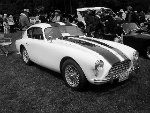



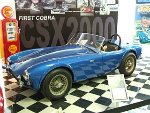
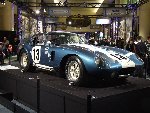
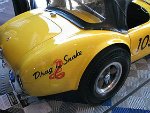
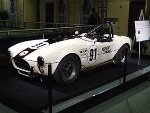
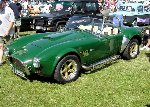

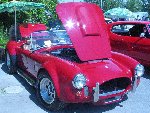

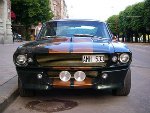
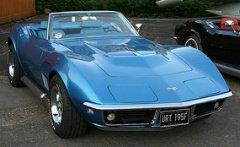
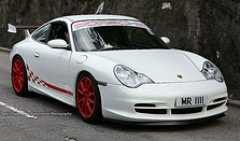
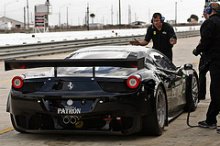
New! Comments
Have your say about what you just read! Leave me a comment in the box below.